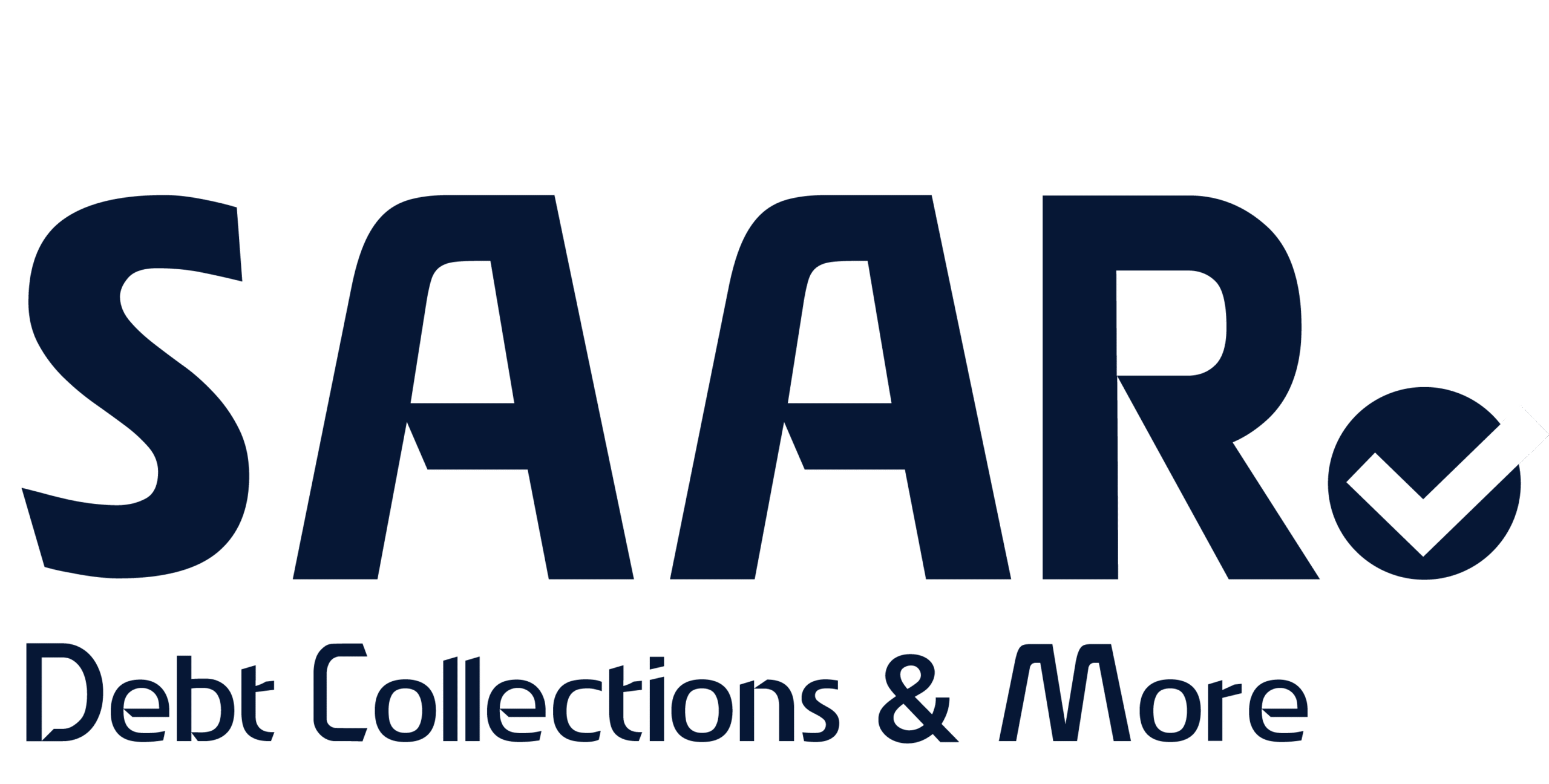عصر جديد في إدارة الديون الدولية: كيف تقود شركة “صار” التحول العالمي في استرداد المستحقات؟
في عالم يتوسع فيه النشاط التجاري بوتيرة سريعة، وتزداد فيه التحديات المالية نتيجة عدم التزام العملاء بالسداد، أصبحت الشركات بحاجة إلى حلول عالمية مبتكرة تساعدها على حماية حقوقها المالية. ومع تزايد التبادل التجاري بين الدول واعتماد الشركات على أسواق متعددة، بات تحصيل الديون الدولية أكثر تعقيدًا من أي وقت مضى.
وسط هذا المشهد، تبرز شركة “صار” كأحد أهم اللاعبين العالميين الذين أحدثوا نقلة نوعية في مفهوم تحصيل الديون عبر الحدود، من خلال استراتيجيات ذكية، قدرات قانونية واسعة، وتقنيات رقمية متقدمة تجعل عملية استرجاع المستحقات أسرع وأكثر كفاءة.
1. قوة “صار” في التحصيل الدولي: ما الذي يميزها؟
اعتمدت “صار” نهجًا متطورًا يجمع بين الخبرة التقليدية والتكنولوجيا الحديثة، مما جعلها قادرة على تقديم خدمات متكاملة تتناسب مع حجم وتنوع الأسواق العالمية.
تمتلك الشركة:
-
شبكة دولية من المستشارين والمحامين.
-
فرق متخصصة في تحليل سلوك المدينين.
-
تقنيات متقدمة لمتابعة عمليات التحصيل بدقة.
هذا المزيج منحها القدرة على تحقيق نسب تحصيل مرتفعة حتى في أكثر الأسواق تعقيدًا.
2. التحديات التي تواجه الشركات في تحصيل الديون دوليًا
تنوع القوانين، اختلاف الثقافات، وعدم التزام بعض الأسواق بالضوابط المالية يجعل عملية التحصيل الدولي مليئة بالمعوقات، من أهمها:
2.1 تعقيد الأنظمة القانونية
لكل دولة قوانينها التي تحدد إجراءات المطالبة، الإخطار، التقاضي، والتنفيذ.
عدم فهم هذه الأنظمة قد يؤدي إلى خسارة الحق المالي بالكامل.
2.2 صعوبة التواصل مع المدينين الدوليين
الفروق الزمنية، اختلاف اللغة، وتنوع العادات التجارية تعيق قدرة الشركات على إدارة التواصل بشكل ناجح.
2.3 مخاطر سعر الصرف
قد يتغير سعر العملة بين لحظة إصدار الفاتورة ولحظة التحصيل، مما قد يقلل قيمة الدين الفعلية.
2.4 تحديات إثبات الدين
في بعض الدول، تحتاج المستندات لشروط خاصة أو تصديقات معينة لقبولها قانونيًا.
وتُعد “صار” واحدة من الشركات القليلة التي تمتلك الخبرة الكافية للتعامل مع كل هذه العقبات باحترافية عالية.
3. خدمات “صار” المتقدمة في إدارة الديون العالمية
3.1 التحصيل الودي الدولي
تعتمد “صار” على أساليب تفاوض احترافية تتوافق مع ثقافات الدول المختلفة، وتشمل:
-
التواصل المحترف مع المدين.
-
تقديم خطط سداد مرنة.
-
الحفاظ على العلاقة التجارية بين الأطراف.
3.2 التحصيل القانوني عبر الحدود
من خلال شبكة عالمية من المحامين والخبراء، توفر الشركة:
-
إجراءات قانونية دقيقة ومتوافقة مع كل دولة.
-
إعداد المستندات والوثائق المتخصصة.
-
متابعة القضايا حتى استرداد الدين بالكامل.
3.3 مراقبة وتحليل سلوك المدينين
تستخدم الشركة تحليلات متقدمة للتنبؤ بسلوك السداد، مما يساعد على:
-
تحديد المدينين الذين يملكون أعلى احتمال للسداد.
-
إعادة تصميم الاستراتيجية لكل حالة.
-
تقليل الوقت المستخدم لاسترداد المستحقات.
3.4 خدمات استشارية مالية وقانونية
تقدم “صار” مشورة شاملة للشركات في:
-
طرق تقليل الديون المتعثرة.
-
بناء أنظمة مالية وقانونية أكثر قوة.
-
حماية الحقوق التجارية أثناء التعامل الدولي.
4. التكنولوجيا: المحرك الأساسي وراء نجاح “صار”
اعتماد الشركة على التكنولوجيا جعلها قادرة على تقديم تجربة تحصيل عالمية أكثر كفاءة، من خلال:
-
أنظمة ذكاء اصطناعي لتحليل المخاطر.
-
لوحات متابعة تفاعلية تعرض حالة كل دين لحظة بلحظة.
-
أنظمة CRM متطورة لتحسين التواصل مع العملاء والمدينين.
-
أنظمة دفع دولية تسهل تحويل الأموال بسهولة وأمان.
هذه الأدوات ساعدت الشركة على تقليل وقت التحصيل وزيادة نسبة النجاح بشكل كبير.
5. الشفافية الكاملة في التعامل الدولي
واحدة من أهم نقاط قوة “صار” هي التزامها بالشفافية التامة في كافة مراحل عملية التحصيل، حيث توفر:
-
تقارير دقيقة وفورية.
-
توضيحًا لكل خطوة يتم اتخاذها.
-
التزامًا صارمًا بالقوانين الدولية وقواعد حماية البيانات.
-
الحفاظ على سمعة العميل وعدم الإضرار بعلاقاته التجارية.
6. قصص نجاح عالمية تثبت قوة “صار”
استطاعت “صار” تحقيق إنجازات مؤثرة في عشرات الدول حول العالم، مثل:
-
تحصيل أكثر من 85% من الديون في أسواق صعبة مثل شرق آسيا وأمريكا اللاتينية.
-
استرداد ملايين الدولارات لشركات أوروبية خلال فترات قصيرة.
-
مساعدة شركات ناشئة على استعادة حقوقها المالية مع الحفاظ على عملائها.
إحدى أبرز قصص النجاح كانت استرداد ديون معقدة لشركة طاقة عالمية من عدة دول في الشرق الأوسط وأفريقيا، حيث استخدمت “صار” مزيجًا من التحصيل الودي والقانوني لتحقيق نتائج سريعة وفعّالة.
7. لماذا تختار الشركات العالمية “صار”؟
هناك عدة أسباب تجعل “صار” الاختيار الأمثل لتحصيل الديون الدولية:
-
خبرة عالمية تتجاوز الحدود.
-
تقنيات حديثة ترفع نسب النجاح.
-
استراتيجيات تفاوض متخصصة تعتمد على فهم الثقافات الدولية.
-
الالتزام التام بالشفافية والقوانين.
-
خدمات مخصصة لكل قطاع وصناعة.
-
قدرة عالية على المحافظة على العلاقات التجارية.
الخلاصة
أصبح تحصيل الديون الدولية عنصرًا أساسيًا في استدامة الأعمال العالمية، ومع زيادة التحديات، باتت الشركات بحاجة إلى شريك قادر على مواجهة التغيرات القانونية، الثقافية، والمالية بخبرة ودراية.
وقد أثبتت شركة “صار” أنها ليست مجرد شركة تحصيل ديون، بل قوة عالمية متخصصة في إدارة العلاقات المالية عبر الدول، وتحويل التعثر إلى نجاح مالي فعلي.
من خلال خدماتها الشاملة، تقنياتها المتقدمة، وفريقها الدولي، تواصل “صار” قيادة قطاع التحصيل العالمي وتقديم نموذج جديد يعتمد على السرعة، الدقة، والشفافية في كل خطوة.










